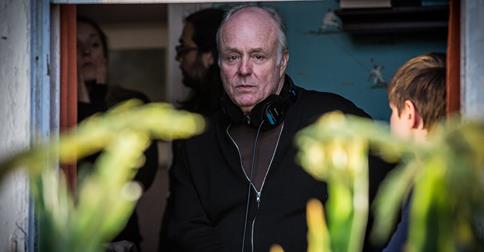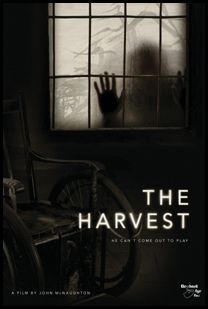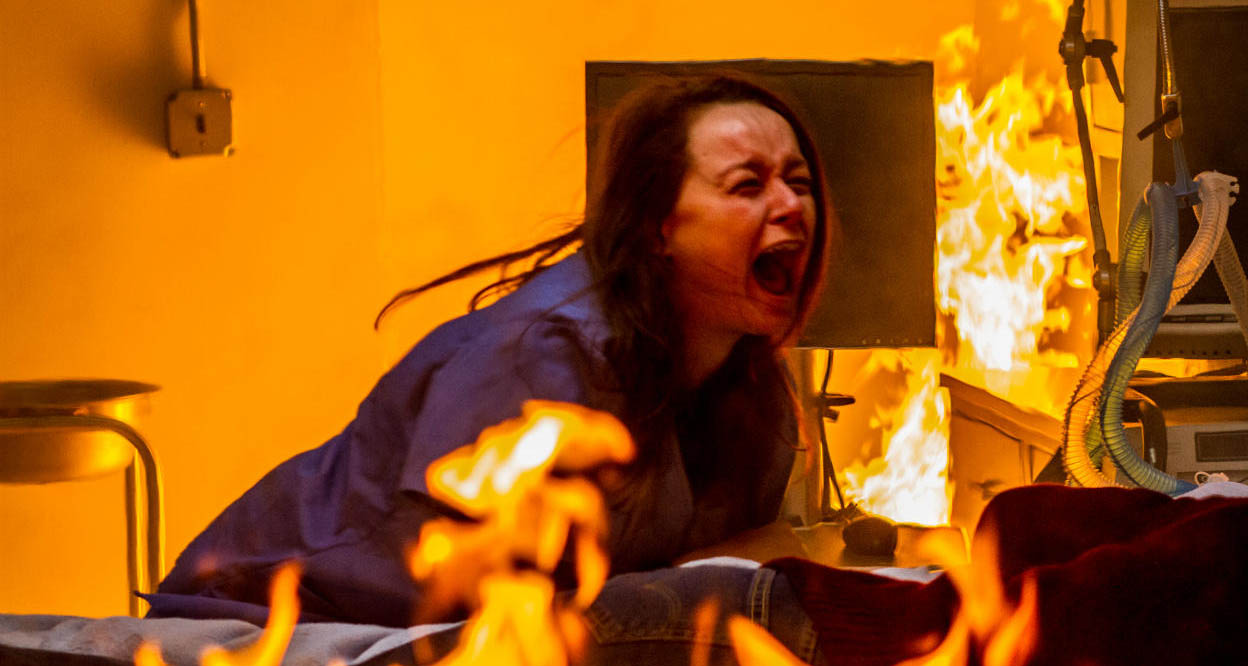From 'Henry' To 'The Harvest,' John McNaughton Forges His Own Road
By Joel Wicklund in Arts & Entertainment on Oct 27, 2014 7:00PM

Director John McNaughton (Photo: Elephant Eye Films)
The veteran director and South Side native should know. He's carved out a distinctive career in spite of an onslaught of difficulties. At a recent appearance at the Music Box Theatre for a showing of his off-the-wall, sci-fi/horror comedy, The Borrower (1991), McNaughton shared nightmarish stories about making the film. But even as he recounted the fly-by-night operations of the production company (which went belly up, delaying the movie's release for years), working with a lead actress (Rae Dawn Chong) who didn't want to be in the movie and other obstacles, McNaughton told his war stories with a cheerful survivor's sense of gallows humor.
The Borrower was his second feature and the second to have a difficult time reaching its audience. Fortunately, his first, Henry: Portrait of a Serial Killer (1986), was potent enough that the three-plus years between its completion and a proper release didn't diminish its impact one bit. Harrowingly realistic and matter-of-fact in its depiction of a killer based loosely on Henry Lee Lucas, the film put both McNaughton and star Michael Rooker on the map.
Though the cult following for Henry linked McNaughton to the horror genre, it's been a relatively small part of his career (you can even argue Henry is not a horror film, but a deeply disturbing social drama). The Borrower and an episode of Showtime's Masters of Horror were his only other efforts in the genre until his latest, The Harvest, which is also his first feature film in more than a dozen years. And once again, he faces some hurdles, as the picture is currently without a distribution deal despite rave reviews on the festival circuit and two high-profile stars (Michael Shannon and Samantha Morton).

Early poster art for "The Harvest" (Elephant Eye Films).
"I make pictures that five years later, people say, 'Wow, I can't believe how good that was'," McNaughton says with a laugh. "There's an old adage: there's no greater recipe for unhappiness than being ahead of your time."
After decades of hard-fought accomplishments, the filmmaker doesn't sound unhappy as much as resigned to working outside the mainstream. He's had his moments of wide-release glory, including the critically acclaimed comedy/drama Mad Dog and Glory (1993) and the stylish and sexy Wild Things (1998).
But despite a cast that included Robert De Niro and Bill Murray (the first of three times Murray worked with McNaughton) and having Martin Scorsese on board as producer, Mad Dog and Glory failed to ignite the box office. Normal Life (1996), one of the director's best films, didn't even get a chance to do that. Inspired by true events, the tale of a cop-turned-bank robber and his unstable wife captures the soul-killing atmosphere of strip mall suburbia with a grim beauty. Featuring a live wire performance by Ashley Judd and an impressive, understated one from Luke Perry, Normal Life had a lot going for it, and with a very low budget it wasn't a big risk. But power shifts at New Line Cinema and a paranoid reaction to test screenings resulted in the movie getting buried. New Line planned to take it directly to cable TV until McNaughton raised some hell about it in the press. The studio gave it a theatrical release of sorts—two theaters in the entire nation.
Though the novelty of Beverly Hills, 90210 heartthrob Perry in a serious and ambitious film should have been a good selling point, McNaughton says it became another point of contention with New Line.
"There was a particular executive there and she hated him. She just had it in her head that no matter what he did, he was 90210," he says. The director had his own doubts when Perry was first suggested to him. "But then I met him. And I said, 'Wait a minute, this guy's good. He's smart and he can act.'"
In an industry that often doesn't abide independent thinkers without a string of hits, Normal Life could easily have kept McNaughton away from bigger pictures. Instead, Wild Things became his first national box office success. But much of the media wrote it off as pure exploitation, ignoring the obvious craft that went into it. Even with a hit, McNaughton was somehow still marginalized.
"I had a meeting with [powerful producer and entrepreneur] Peter Guber, years later, and he said, 'You know, that [Wild Things] was a really good movie.' And I said, 'No shit, Peter!'," McNaughton says with a chuckle, relating another case of too little/too late support.
After his 2001 black comedy Speaking of Sex went unreleased in the U.S. (until an unceremonious DVD release six years later), McNaughton worked more frequently in television. He had already worked in the medium, most notably directing several episodes of NBC's acclaimed Homicide: Life on the Street. Though he had to adhere to the show's visual style, McNaughton has nothing but good things to say about working on the series.
"I did one [Jerry] Bruckheimer show [an episode of Without a Trace] and what a factory that is. Homicide was not. It was all shot in Baltimore, so the core crew was John Waters' crew. Some of the most fun and crazy people...it was just a blast working with those people."

Samantha Morton in "The Harvest" (Elephant Eye Films)
Still, longtime admirers can't help but be excited that McNaughton has another feature film coming out...eventually. If early reviews from its festival run are any indication, The Harvest—while perhaps earning the horror label—does not walk a formulaic genre path. That's not surprising considering McNaughton's taste for the unconventional. "When I read a script, I look for something I haven't seen before," he says. "And that's the worst thing in the world, from a marketing department's view."
What appealed to him most about The Harvest was its blending of real life trauma with something more mythic. "Beneath the surface, this had the bones of a Grimm's fairytale."
Whenever and however The Harvest is ultimately released (McNaughton expects a theatrical window, but can't rule out a video-on-demand premiere), the director is pleased with the finished result.
"It is exactly, without compromise, the picture I intended to make," he notes proudly. And despite the rough road he has often traveled as a filmmaker, for McNaughton an uncompromised vision makes the struggle worthwhile.